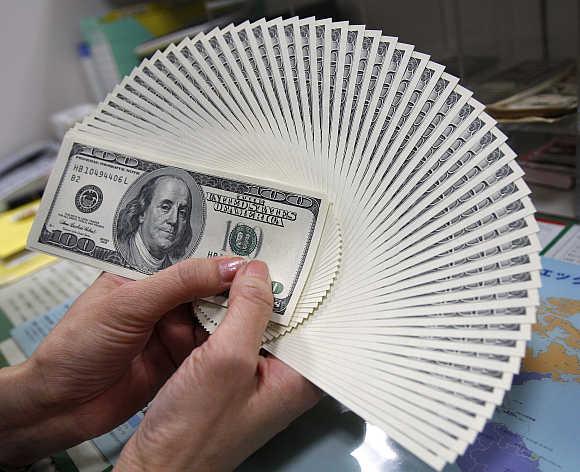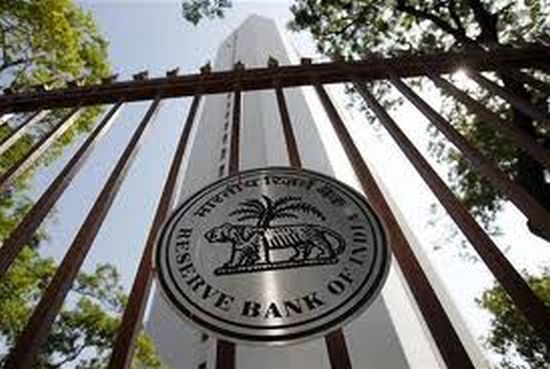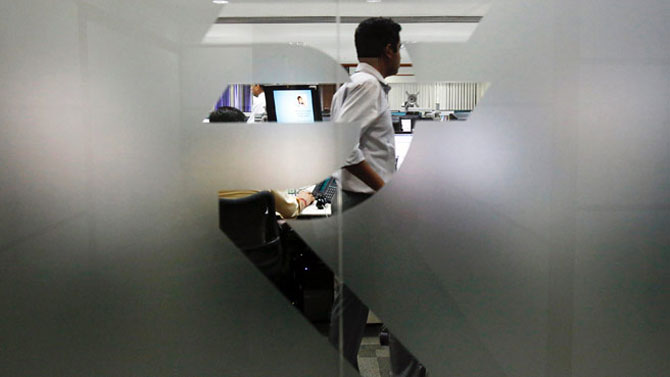
Arun Jaitley has started his innings as finance minister by setting his priorities as restoring growth while taming inflation and reining in the budget deficit.
Having been commerce minister in the Vajpayee government from January 2003 to May 2004 should assure exporters and importers that he knows their problems well.
As commerce minister, he presented India’s views forcefully at the fifth ministerial conference of the World Trade Organization in September 2003 at Cancun, Mexico.
He articulated the need for less developed economies to protect their farmers’ interests and got them to collectively argue that the agricultural and export subsidies of developed countries hurt the farmers and competitiveness of developing ones.
. . .

Jaitley did the bulk of the spadework for a separate legislation on Special Economic Zones.
Kamal Nath built on it to get the SEZ Act through in 2005.
The scheme attracted a lot of investment till Pranab Mukherjee, as finance minister, imposed a Minimum Alternate Tax on SEZ units and global recession hit export growth.
It was in 2003 that duty credits at 10 per cent of incremental exports were given to export houses.
The entitlements were so liberal that the business of buying export performance flourished.
. . .

Many stringent restrictions on entitlements were later imposed under the tenure of Jaitley.
Litigation increased and it was replaced with the Target Plus Scheme in 2004.
Trade agreements with developing countries started in October 2003 with the India-Thailand Framework Agreement.
Subsequently, India got into many other agreements with developing countries -- Mercosur, Asean, Korea and so on.
These do not seem to have benefited Indian exporters or manufacturers and the commerce ministry is now evaluating the benefits.
. . .

Thus, Jaitley’s record is somewhat mixed.
Where he had to argue and get others to support him, as in the Cancun WTO meet, he had great success.
Some of his initiatives, such as trade agreements, duty credits for export houses and SEZ laws, appeared to succeed for a while before failing.
To be fair, Jaitley only got these going.
Many developments took place after his exit from the commerce ministry.
Therefore, too much should not be inferred about his abilities to think through.
In any case, there can be no doubt about Jaitley’s pro-business credentials.
. . .

He eased foreign investment restrictions to allow foreign companies to fully own local ventures in key sectors such as oil exploration and oil and gas pipelines, allowed foreign investments in some segments of the media which traditionally had restrictions on foreign ownership, allowed 100 per cent foreign ownership in printing scientific and technical magazines, announced that foreign investors would be permitted to own up to 74 per cent of local banks, up from a previous 49 per cent, and allowed foreign banks the choice to operate in India by either setting up local subsidiaries or through branches.
The Modi sarkar is in a hurry, having raised the hopes of aspiring youngsters.
The pressure to deliver on promises can lead to quick-fix solutions, ignoring the need for nuanced response.
The test of Jaitley’s undoubted intellectual brilliance will be how he builds consensus and crafts policies that survive over a period of time.